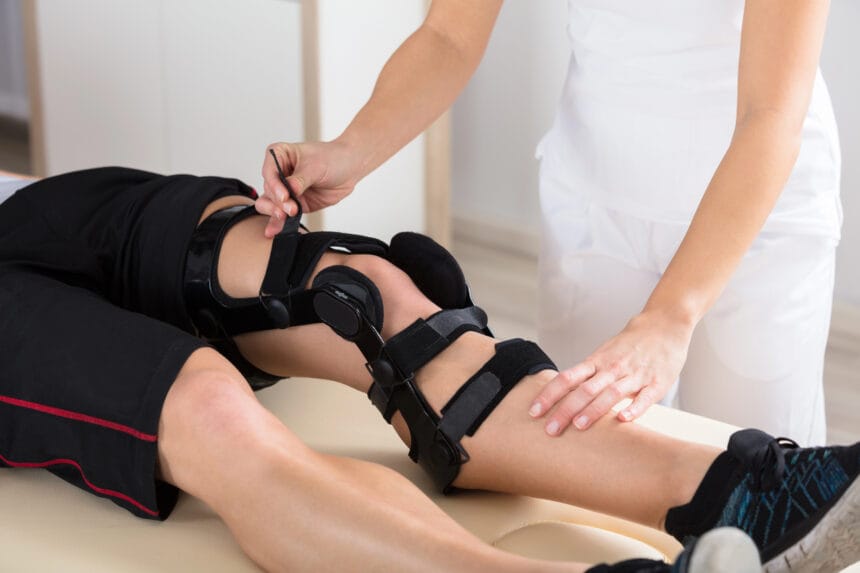The intersection of medicine and law is becoming increasingly vital, particularly in personal injury cases. For lawyers navigating the complexities of these claims, a deep understanding of medical insights can mean the difference between a favorable settlement and an unresolved dispute. Whether it’s deciphering diagnostic reports or interpreting expert opinions, the ability to integrate medical knowledge into legal strategies strengthens advocacy.
This blog explores how personal injury lawyers utilize medical insights to build stronger cases. By collaborating with medical experts, analyzing records, and addressing costs, they craft compelling arguments that ensure their clients receive the justice they deserve.
The Importance of Medical Knowledge in Personal Injury Law
Personal injury cases revolve around the physical and emotional harm a client suffers. To present an accurate depiction of these injuries, lawyers must have a solid grasp of medical concepts, including diagnoses, treatment plans, and recovery timelines. According to one legal practice, understanding the nuances of injuries, such as the distinction between a mild concussion and a traumatic brain injury, allows attorneys to argue effectively for appropriate compensation.
For instance, in cases involving spinal injuries, a lawyer familiar with medical terminology can confidently explain the long-term implications of nerve damage or paralysis to a jury. This knowledge not only strengthens the case but also conveys credibility, fostering trust with judges and jurors.
Collaborating with Medical Experts
Medical experts are invaluable allies for personal injury lawyers. These professionals provide critical insights into the severity and impact of injuries, which are often contested by insurance companies. By offering expert testimonies, medical practitioners clarify complex medical jargon, ensuring that all parties fully understand the extent of a client’s suffering.
Imagine a case involving disputed causation—was the injury caused by the accident, or was it pre-existing? A medical expert can carefully explain how certain injuries manifest and why they are directly linked to the incident. Such testimony can dismantle opposing arguments, leaving little room for doubt.
Navigating Medical Records and Evidence
Medical records form the backbone of any personal injury claim. For lawyers, these documents are not just pieces of evidence but narratives of the client’s journey through pain and recovery. A thorough review of medical records enables attorneys to identify details that support their client’s case, such as treatment timelines or evidence of negligence in care.
Additionally, lawyers often analyze diagnostic results like X-rays or MRIs to corroborate claims of injury severity. They may also highlight inconsistencies in the opposing party’s arguments, such as misrepresented medical findings. This attention to detail strengthens their negotiation stance with insurance adjusters or in court.
To further enhance the use of medical records, lawyers may collaborate with medical record review experts. These professionals specialize in identifying subtle yet critical details, such as discrepancies in documentation or overlooked treatment notes. By leveraging this expertise, attorneys can uncover evidence that bolsters the client’s claim. Furthermore, using technology like specialized software, lawyers can organize and cross-reference medical records with other evidence, such as accident reports or witness statements. This comprehensive approach not only clarifies the extent of the injuries but also connects them directly to the incident, leaving little room for doubt.
Addressing Medical Costs and Long-Term Implications
One of the most significant aspects of a personal injury case is estimating the financial burden of medical care. This includes current expenses like surgeries and hospital stays, as well as long-term needs such as physical therapy or adaptive equipment. Lawyers use medical insights to calculate these costs accurately and present them convincingly during negotiations or trials.
Moreover, understanding the prognosis for recovery can affect settlement demands. For example, an injury requiring lifelong care, such as a traumatic brain injury, necessitates higher compensation. By comprehensively addressing these factors, attorneys ensure their clients are not left financially vulnerable.
Overcoming Challenges in Medical-Legal Cases
Medical-legal cases often present unique challenges, such as disputes over the legitimacy of injuries or conflicting expert opinions. For instance, opposing counsel may argue that the client’s pain is exaggerated or unrelated to the incident in question. These disputes can delay justice and complicate settlement negotiations.
To overcome such obstacles, personal injury lawyers adopt proactive strategies. They may consult multiple medical experts to validate their claims or utilize advanced tools, such as injury simulations or digital evidence presentations. These approaches help clarify the facts and strengthen the case, leaving little room for opposing arguments to succeed.
Furthermore, coordinating with expert witnesses can be a hurdle. Identifying the right medical professionals who can provide unbiased, authoritative testimony is crucial. Attorneys must also anticipate and address challenges from opposing counsel, who may attempt to discredit the expert’s opinion or question their qualifications.
Conclusion: The Synergy of Medicine and Law
The collaboration between medicine and law is a powerful tool in personal injury cases. Lawyers who integrate medical insights into their strategies are better equipped to represent their clients effectively. By understanding injuries, working with experts, and addressing costs, they advocate for justice while ensuring their clients’ needs are met.
As medicine and law continue to evolve, their partnership grows stronger. This synergy not only benefits individual clients but also enhances the integrity of the legal system. By bridging the gap between these disciplines, personal injury lawyers champion fairness and ensure that every story of injury finds its rightful resolution.






